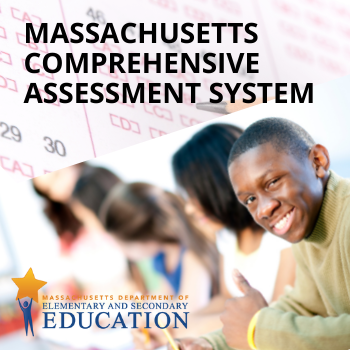The Massachusetts Department of Elementary and Secondary Education provides leadership, oversight, funding, support, and accountability for the Commonwealth’s approximately 400 school districts that educate close to 1 million public school children each year and oversees programs that serve 20,000 adult learners each year.
Source: https://www.doe.mass.edu/commissioner/
Kids spend more time at school than at any other place but home, and Massachusetts’ more than 70,000 public school teachers are an integral part of students’ lives. Every month during the school year, DESE highlights resources and information relevant to teachers’ work, reflection pieces written by current teachers, and upcoming opportunities to engage with DESE.
Source: https://www.doe.mass.edu/amazingeducators/
Statewide assessments help parents, students, educators, and policymakers determine where districts, schools, and students are meeting expectations and where they need additional support. To increase understanding school performance, Student Assessment Services develops and administers the MCAS (Massachusetts Comprehensive Assessment System).
Source: https://www.doe.mass.edu/assessment/default.html
The Office of STEM is part of DESE’s Center for Instructional Support. Responsibilities include:
Articulating high quality learning standards for mathematics, science and technology/engineering (STE), and digital literacy and computer science (DLCS). Along with identifying, developing, and disseminating a rich set of implementation resources, and Facilitating networking opportunities for educators to ensure that best practices are shared across districts.
Source: https://www.doe.mass.edu/stem/
Federal and state laws require that English learner (EL) students be assessed annually to measure their proficiency in reading, writing, listening, and speaking English, as well as the progress they are making in learning English. In fulfillment of these laws, EL students are required to participate in ACCESS for ELLs tests, which replaced MEPA tests beginning in the 2012-2013 school year.
Source: https://www.doe.mass.edu/mcas/access/default.html














